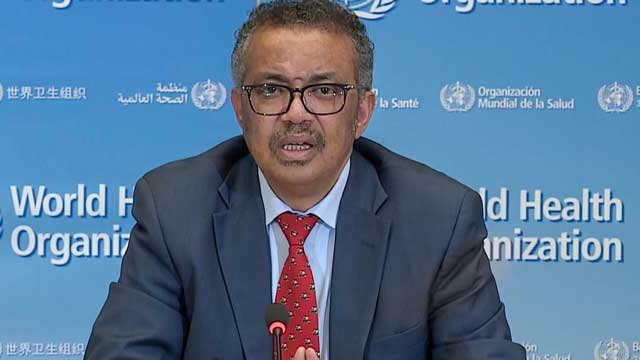
Kampala, Uganda | THE INDEPENDENT | Countries that are opening their economies must be serious about suppressing COVID-19 infections, to save the world from a disaster that could arise from opening up without a plan, the head of the World Health Organization (WHO) has said.
To control transmission, the who chief Dr Tedros Adhanom Ghebreyesus said, it is essential to prevent events that lead to outbreaks. COVID-19 spreads efficiently among clusters of people, with explosive outbreaks linked to gatherings at places such as sports stadiums, schools nightclubs and places of worship.
At the same time, there are ways to hold gatherings safely, Tedros said but hastened to add that decisions about how and when must be made with a risk-based approach, tailored to local conditions. “the more control they have, the more they can open.” he told a press conference last evening.
Dr Tedros said countries experiencing significant community transmission may need to postpone such events. Uganda has in recent weeks recorded a spike in infections especially in parts of Kampala with an average of 90 cases recorded every day. By yesterday, the cumulative infection rates were close to 3000.
But Dr Tedros said that countries that are seeing sporadic cases or small clusters, on the other hand, can find creative ways to hold events while minimizing risk. He advocated a focus on reducing deaths by protecting the elderly, people with underlying conditions and essential workers and encouraged individuals to stay at least one metre away from others, clean their hands regularly, practise respiratory etiquette by wearing a mask and avoid close-contact settings.
Meanwhile, the agency is working with its partners through the ACT Accelerator and COVAC Global Vaccine Facility to ensure that a vaccine, once developed, is available equitably to all communities. He thanked the European Commission, which announced today it would join the COVAX Facility, for its €400 million contributions.
To be sure, all countries are under extreme pressure, he declared. A WHO survey on the impact of COVID-19 on health systems in 105 countries found that 90 per cent of those surveyed have experienced disruption to their health services, with low- and middle-income countries reporting the greatest difficulties.
Most nations reported that routine and elective services have been suspended, while critical care – such as cancer screenings and treatment, and HIV therapies – have seen high-risk interruptions in low-income countries.
“The survey shines a light on the cracks in our health systems, but it also serves to inform new strategies to improve healthcare provision during the pandemic and beyond,” said Dr Tedros Adhanom Ghebreyesus, WHO Director-General. “COVID-19 should be a lesson to all countries that health is not an ‘either-or’ equation. We must better prepare for emergencies but also keep investing in health systems that fully respond to people’s needs throughout the life course.”
********
URN
 The Independent Uganda: You get the Truth we Pay the Price
The Independent Uganda: You get the Truth we Pay the Price





